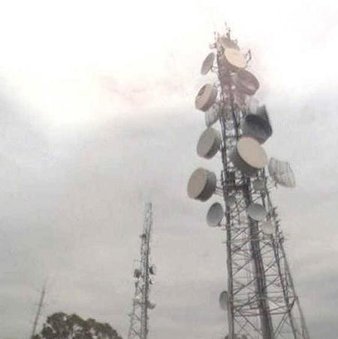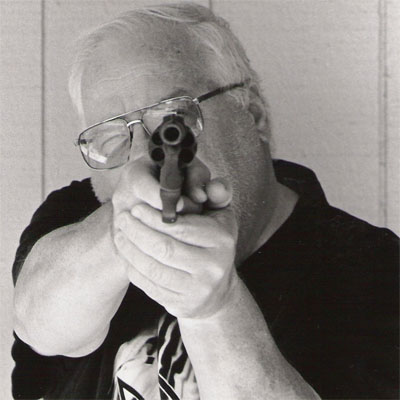I served as a Police Officer, Corporal, Inspector, Sergeant, Lieutenant and Captain from 1980 to June, 2011 in the SF Bay Area. In 1994, I was assigned to a regional SWAT Team as a Team Leader and Sniper. I became a Team Commander in 1999. When I retired, I was the senior Commander and Sniper Team Commander for the largest regional team in California. I now teach Administration of Justice at Skyline College and I'm the On-Screen Team Lead for www.GuardAmerican.com, a firearms training website.
Yes, we do. SWAT sniper/observer teams deploy together in most cases, just like in the military, and for the same reasons. In police situations, a sniper team may be responsible for covering a particular door or window during a hostage rescue, and having two sets of eyes with different optics watching things is always better than one set. Relaying intelligence to the command post and to the entry team is a huge part of the sniper/observer duties, as well as providing force protection and overwatch to the entry team. At the relatively close ranges encountered by SWAT snipers, the observer is usually using binoculars with a wider field of view than the sniper can see through the rifle scope, and can direct the sniper to a particular window or doorway if the suspect is spotted.
SWAT activations can last many hours; after a while, the sniper must be relieved in order to rest his eyes and muscles. While "on the scope" a sniper's job requires intense, 100% concentration in case a life-saving hostage rescue shot must be taken. Snipers are observers and observers are snipers, equally qualified in both jobs. A team of two can be self-relieving to extend deployment time for up to 12 hours if need be.
The training and equipment used by police and military sniper/observers is very similar (sometimes identical.) Of course, police snipers can't call in an airstrike :-)
One of the reasons that SWAT Teams train so much and in so many different possible scenarios is so that the number of "unconventional" situations are few and far between. Every call-out is unique and presents its own challenges. It could be a high-risk warrant service, an armed, barricaded suspect incident, a hostage rescue, a presidential protection detail...I will have to think about one that strikes me as the most unconventional and get back to you. Sorry!
One thing I will never do is pretend to be an "expert" in an area I'm not fully versed in. Explosives is one of those areas. I can tell you from my limited knowledge on the subject is that typical bomb squad suits are basically giant bullet resistant vests made from the same materials, but that cover the entire body, not just the torso. As such, they are good at stopping flying fragments and shrapnel common to small explosive devices. I can also tell you that what kills most people close to an explosion is the concussion of the rapidly expanding shock wave, which can liquify internal organs without leaving a mark on the skin. If the blast is big enough, and the bomb tech is close enough, the suit won't help much. So, yes, they ARE the bravest SOBs on the planet! BTW, I would be delighted to hear from a military EOD specialist or police bomb tech if my information is incorrect. Learning is never-ending.
P.S. One of my favorite T-shirts is the one that says, "I'm a Bomb Tech. If I'm running, try to keep up."
I loved my job. It was so much a part of my life, 24 hours a day for over three decades, that leaving it was traumatic for me. Going from being "the man" who everyone calls in the middle of the night for guidance, direction, life-and-death decisions, responding code three to all manner of emergencies, going through doors with my men, adrenaline rushes, saving lives, etc, to the next day being completely out of the loop and sidelined, was very difficult for me. Other cops can't wait to retire and are very happy once they leave police work. In a way, I'm jealous of them. I would have done the job until they carted me off in a box.
Radio program/music director
 Just how good of a radio host do you think Howard Stern is?
Just how good of a radio host do you think Howard Stern is?
Correctional Officer
 Were there a lot of suicides in your prison, and what's the most common way prisoners do it?
Were there a lot of suicides in your prison, and what's the most common way prisoners do it?
Physical Therapist
 What's the most dramatic "before-and-after" improvement you've ever seen with a patient?
What's the most dramatic "before-and-after" improvement you've ever seen with a patient?
The goal of police officers is to save lives, not take them, so we do everything humanly possible to avoid hurting anyone. SWAT call-outs are driven by the actions of the suspect; we merely react to those actions. So, if I'm on the rifle in a hostage rescue incident, and I'm responsible for watching the suspect through a window, and he points a gun at a hostage or is holding a suspect with a knife under their throat, he is posing an immediate threat to the life of another, and I will eliminate that threat immediately. Someone should ask me how we can ensure that the suspect won't kill the hostage when we fire. Anyone?
Thanks Barry! :-)
Here is one of the areas where the training and mission is a bit different between military and police snipers. Military snipers generally fire at much longer ranges than SWAT snipers. Their goal is to kill enemy soldiers or combatants, and a chest hit at many hundreds of yards will do the trick. If they don't die immediately, no big deal.
When a SWAT sniper takes a shot at a hostage-taker (which is a very rare occurrance) the absolute requirement is to save the life of the hostage. If the suspect is holding a gun to the head of the hostage or holding a knife to their throat, a shot to the chest or leg or anywhere else will cause the suspect to flinch, pulling the trigger or jerking the knife. Dead hostage. Not good.
Therefore, SWAT snipers train for the only shot that will ensure that the suspect will NOT reflexively shoot the hostage, and that is a brain shot. It sounds gruesome, but this is the only thing that instantly incapacitates the central nervous system, causing all muscles to relax rather than contract. The trigger finger goes limp, the hostage is saved.
So, SWAT snipers have a much smaller aiming point (and are much closer) than military snipers, generally speaking.
And it is a common tactic for entry teams to "MOVE" on a sniper-initiated assault.
Hi Clarke,
SWAT is a specialty assignment, like K9 Handler, Motor Officer, Evidence Tech, etc. Only larger cities have full-time SWAT Teams, like L.A. and New York. All they do is train and respond to incidents. As such, at most departments, being on SWAT is an added, part-time duty on top of the officer's regular assignment, whatever that might be.
SWAT is something you only do if you truly love it and want to do it. If the department you work for has a team, and an opening comes up, officers may submit a letter of interest. In most cases, the next step is a shooting test and physical agility test. If you fail those, you're out until the next opening. If you pass, most agencies will have an inteview conducted by SWAT Team Leaders and Commanders from your department and maybe members of your regional team from other departments.
If you get past all these hurdles, you go off to a basic SWAT school. Some are a week long, good ones are two weeks or more. Once you graduate, you begin regular training with your team. When the Team Leaders think you're ready, you can start responding to activations or "call-outs." Initially, you'll be on perimeter details until you have proven yourself worthy and safe enough to your team mates to be on the entry team. Absolute faith and confidence in your ability and heart by those trusting you with their lives is required. This is an honor not easily achieved, needless to say.
Many would-be SWAT candidates can't pass the shooting/PT/interview process, and not everyone who goes to SWAT School passes the course. I'm sure it varies widely by department, but a 20% success rate seems about right.
-OR-
 Login with Facebook
Login with Facebook (max 20 characters - letters, numbers, and underscores only. Note that your username is private, and you have the option to choose an alias when asking questions or hosting a Q&A.)
(A valid e-mail address is required. Your e-mail will not be shared with anyone.)
(min 5 characters)
By checking this box, you acknowledge that you have read and agree to Jobstr.com’s Terms and Privacy Policy.
-OR-
 Register with Facebook
Register with Facebook(Don't worry: you'll be able to choose an alias when asking questions or hosting a Q&A.)